The Joy Of Jamulus!
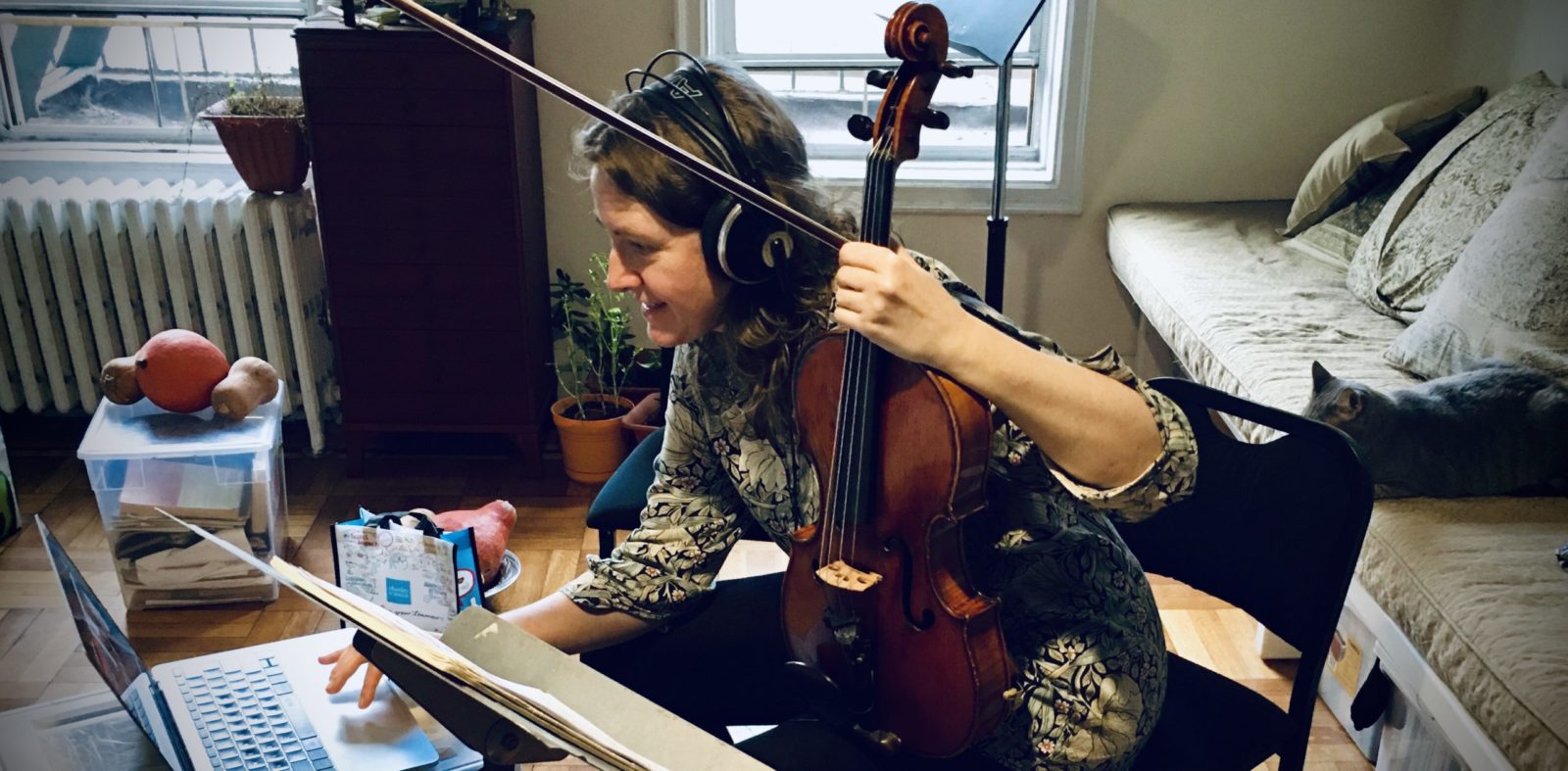
When I was a child I used to enjoy watching The Jetsons cartoon. I don’t remember many details of the characters or plots, but I was especially fascinated that they drove a spaceship to school, had a television-phone and a robot doing housework. That was the mid 1980s. All but the first of those amazing things have come true for me now in 2020 – I have a television-phone (also known as Skype, Zoom, WhatsApp video, FaceTime on my iPhone and computer) and a robot vacuum cleaner running around my apartment pretty much every day. Life is good! And it just recently got better: I can now play music in real time with friends over the Internet.
It’s a lot of fun, it really actually works, and as daunting as it may seem – it is not that difficult to set up JamKazam and Jamulus if you carefully follow the detailed, user-friendly step-by-step instructions provided by some wonderful members of ACMP! Moreover, if you run into trouble, we already have 13 volunteers on ACMP’s new Technology Task Force. Full disclosure: I already owned all of the equipment suggested for an optimal experience with both programs. But, if you do not – you will most likely spend somewhere between $150 and $300, perhaps even less if you take advantage of ACMP’s sweet custom discount at Sweetwater! Details are provided on our members-only Member Discounts page.
Following Susan Alexander’s excellent and detailed instructions in her online Guide to JamKazam, I had no trouble at all setting it up and a few days later I had a duo session with ACMP violist and recent JamKazamer Carol Kirsh (also ACMP’s representative for Toronto on the North American Outreach Council.) For those of you who missed it, please read Susan’s article here. My take-away from my personal experience on JamKazam is: definitely follow all of Susan’s instructions, including her recommendations on getting optimal audio quality! She explains how to turn off your own “compression” and how to turn off the compression of each new player you work with and get them to do the same. Once I did this, the sound quality was excellent and the latency was negligible. I live in the Bronx, and it felt like Carol was right here in my living room.
Now on to Jamulus!
ACMP Cellist and Vertical Violist Mike Tietz co-authored this excellent step-by-step guide “Jamulus for Chamber Musicians” with Bruce Kinmonth and Tom Frenkel.
This guide is geared towards people running Windows on a PC. My computer is a Mac, but Mike Tietz assured me that I could follow the guide, with 3 small differences. If you use a Mac you can skip step one – i.e. there is no need to download the “ASIO driver.” Step two is downloading the free Jamulus software – and that experience is also a bit different on a Mac. It is really easy, but there might be one little glitch when you try to open the Jamulus application. Jamulus provides simple step-by-step instructions here.
The third main difference for setting up Jamulus on a Mac is that your Mac computer may not automatically allow Jamulus to access your microphone. That did not happen to me – but if your first experience of Jamulus is “radio silence,” click on the little apple icon on the top left corner of your screen, click on “System Preferences,” then click on “Security and Privacy” (for me, it is the sixth icon in from the left in the top row), and then there is a row of four tabs, the fourth of which is “Privacy.” Click on Privacy and you should see: “Allow the apps below to access your microphone.” Make sure Jamulus is checked, and you are ready for your big Jamulus adventure!
Once you have downloaded the Jamulus software (and the ASIO driver, if you use a PC), follow Michael, Bruce and Tom’s Jamulus guide to a T. It all works! So far I’ve had a few string duo sessions and one string trio session, playing music by Bach, Beethoven, Schubert and Hennessy. Even though it’s audio-only, you can actually make great music together, including accelerandi, ritardandi, starts, stops, general pauses… And of course you can always Zoom together afterwards if you want!
A few little tips from my experience:
- When you open Jamulus, you can see who’s playing on the public Jamulus servers. You can even listen in (discreetly) to ongoing Jamulus playing sessions by connecting to a server where you see people playing. Before going any further, create your own Jamulus profile. Once you open the Jamulus application, you will see these menu options on the top left-hand corner of your screen: “Jamulus, File, View, Edit, Help.” Click on “View” and select “My Profile.” You can edit the profile any time, and it is incredibly simple. That way, once you connect to a server, the other musicians will able to see who you are and what instrument you play. They may even talk to you and invite you to jam!
- The next step is choosing an empty server with a low “ping time” in your area, and testing your own sound. That’s a good first chance to play around with your mic level. I suggest starting low and bringing it up. If your mic is too “hot” you might hear an annoying crackling sound.
- It’s in the guide – but don’t forget: mute yourself and set your headphone level to very low or 0 before dropping in and listening to other people’s sessions. I did not read the fine print, and was amazed that so many musicians were playing experimental ambient drone music when I hopped from server to server. Then I realized I was hearing feedback!
- You need to use headphones – and not the kind of headset that comes with your phone, with the built-it mic. That mic will confuse Jamulus!
- Finding a server – if you are like me, you may not notice that there are multiple public server lists. The “Default” list comes up first, but check out all the other tabs for more options.There are two ways to get to the server menu – by clicking “connect” on the main screen, but also by opening the “View” menu on the top left-hand corner of your screen and selecting “connection set up.” This is useful when you are already in a session and want to hop, Jetson-like, to another server.
- The one tricky thing about Jamulus is avoiding that crackling sound I mentioned above. Here is a trick that worked for me in the three sessions I have had so far: When you go into Settings, on the bottom left corner make sure “Enable Small Network Buffers” is checked (that is the default.) And below that you can choose your level of buffer delay. The middle one (5.33 ms) is recommended – but I tried the lower latency (2.67) and turned my microphone down to around 50%. If all players do the same, then there will not be trouble hearing everyone. Moreover, you have a separate place to set your headphone mix. If it doesn’t work, don’t be discouraged! Keep experimenting until it goes away or try another server.
- Lastly, once you’ve connected to Jamulus, try to set up a playing session with one of the ACMP Technology Task Force members (aka “Jamulus sherpas.”) They can give you an “online tour” of the Jamulus servers, lists and etiquette, walk you through the screens, explain the settings, and get you started playing with useful tips. Then you’ll be all set to organize your own groups and play!
I highly encourage you all to try Jamulus. As outlined in the guide, it works best with some gear, but you can start with just a computer and some headphones and take it from there. So, read the “Jamulus for Chamber Musicians”guide here and let’s get started!
JamKazam or Jamulus?
How about both?
I am too much of a novice to make a recommendation one way or the other, but I think the main difference is the social dynamic of the two applications.
Unless you know someone with a private server, anyone can drop in on any Jamulus server at any time. The plus side: it is a thriving musical social scene – the kind we have all been missing since being sequestered at home because of COVID. People are respectful and will not interrupt you, but if you want to make new friends – and meet musicians online – they are there for the making! In fact, Mike Tietz actually found me on the first night that I was setting up Jamulus and testing my sound, and we ended up playing a duo by W. F. Bach at 11:30pm. ACMP member flutist Cyril Penn dropped in on a trio session I had a few days later, too. It was very nice to “meet” him and I see flute quartets on the horizon…
If you prefer a bit more privacy, JamKazam might be more for you – where you actually have to set up a session and invite friends. Or maybe you have both options, and it depends on what you are doing and on your mood that day.
Some other differences: JamKazam has a video option and Jamulus is audio only. But, to make JamKazam work with optimal sound and the lowest possible latency, you MUST turn off the camera, anyway. I had it on when Carol and I were tuning and got that annoying crackling sound. It is however fun to turn on the camera when you are taking breaks.
Another recent difference: starting on January 1, you will have to pay for JamKazam. The price plans are reasonable, and worth supporting. All the more reason to try it now, since everyone will get all the paid features for free through December 31. However, Jamulus will remain free!
I am still in the very early phases of this research and will keep writing with more updates on Jamulus and JamKazam, and anything I will discover through my upcoming adventures with SoundJack and Sonobus. Please contact me at sgriffin@acmp.net if you have leads to any new and exciting information!
More Articles
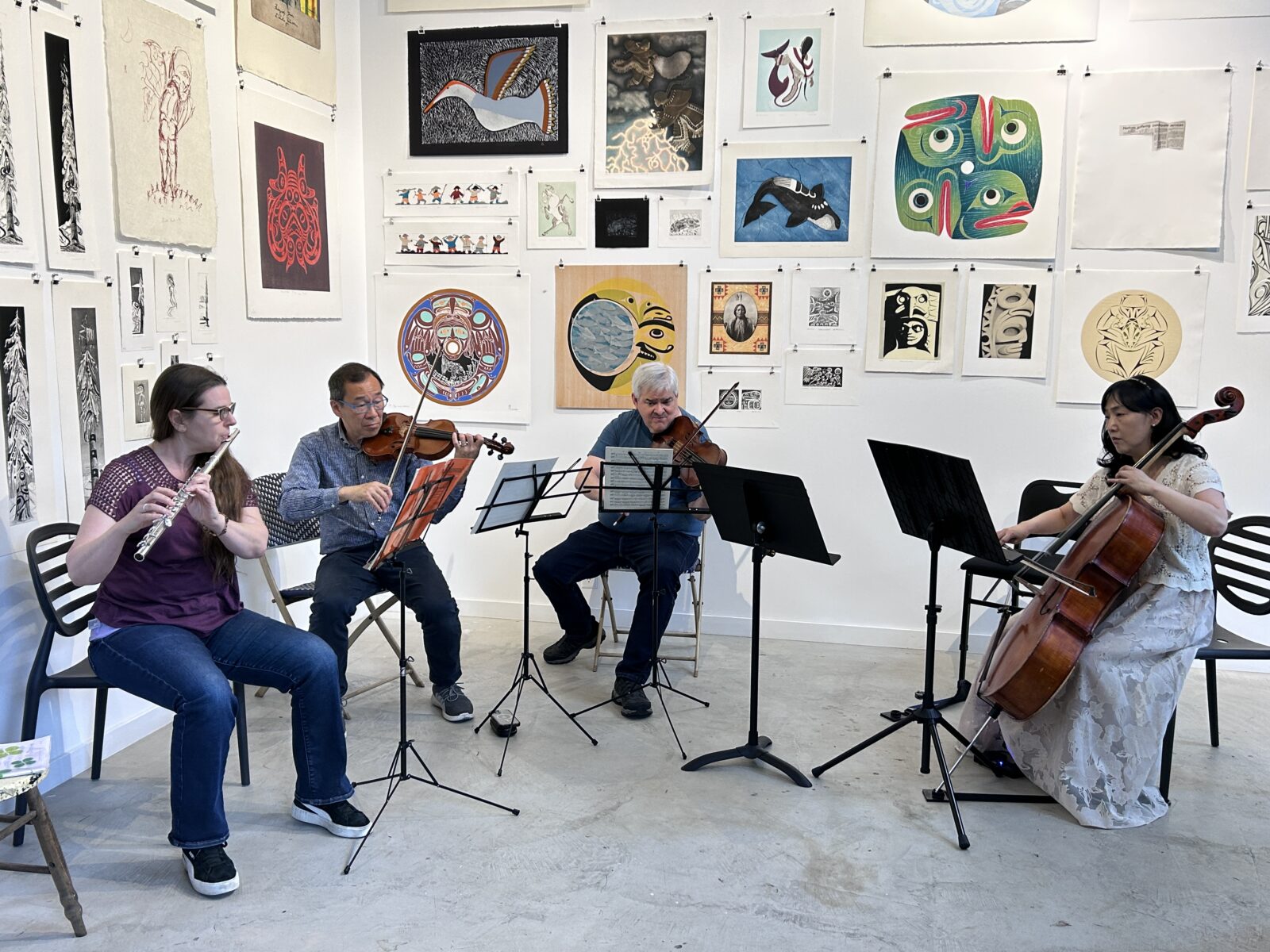
And the Play-Ins continued in June!
With ACMP's rapidly growing community of chamber musicians, Play-In season is never over! Read about two recent Play-Ins in June.Read More ↗
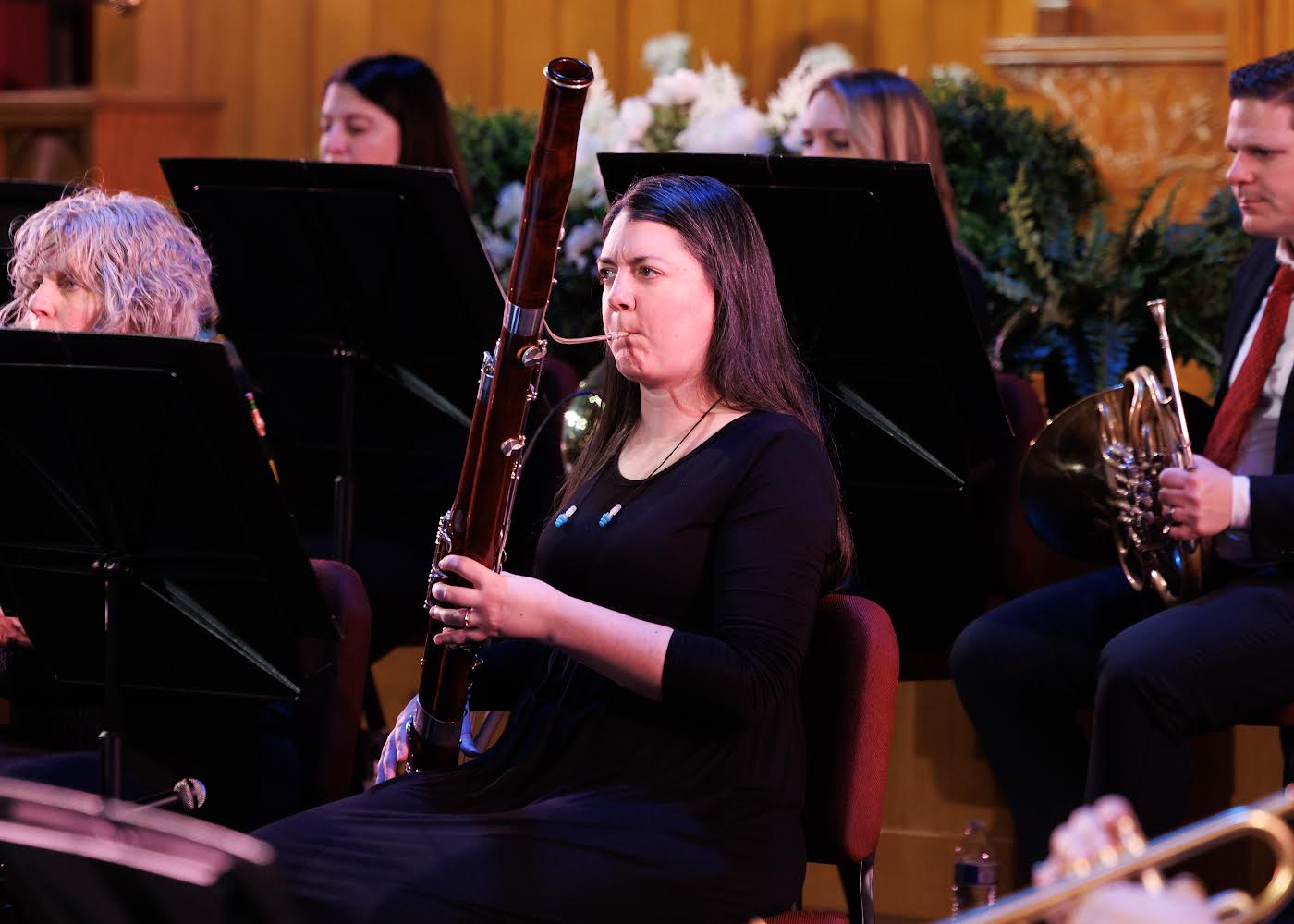
2025 News of Note Puzzle Contest Winner and Answers
Congratulations to bassoonist Jessi Vandagriff for winning this year's News of Note puzzle contest. And read more for the great puzzle answer reveal!Read More ↗
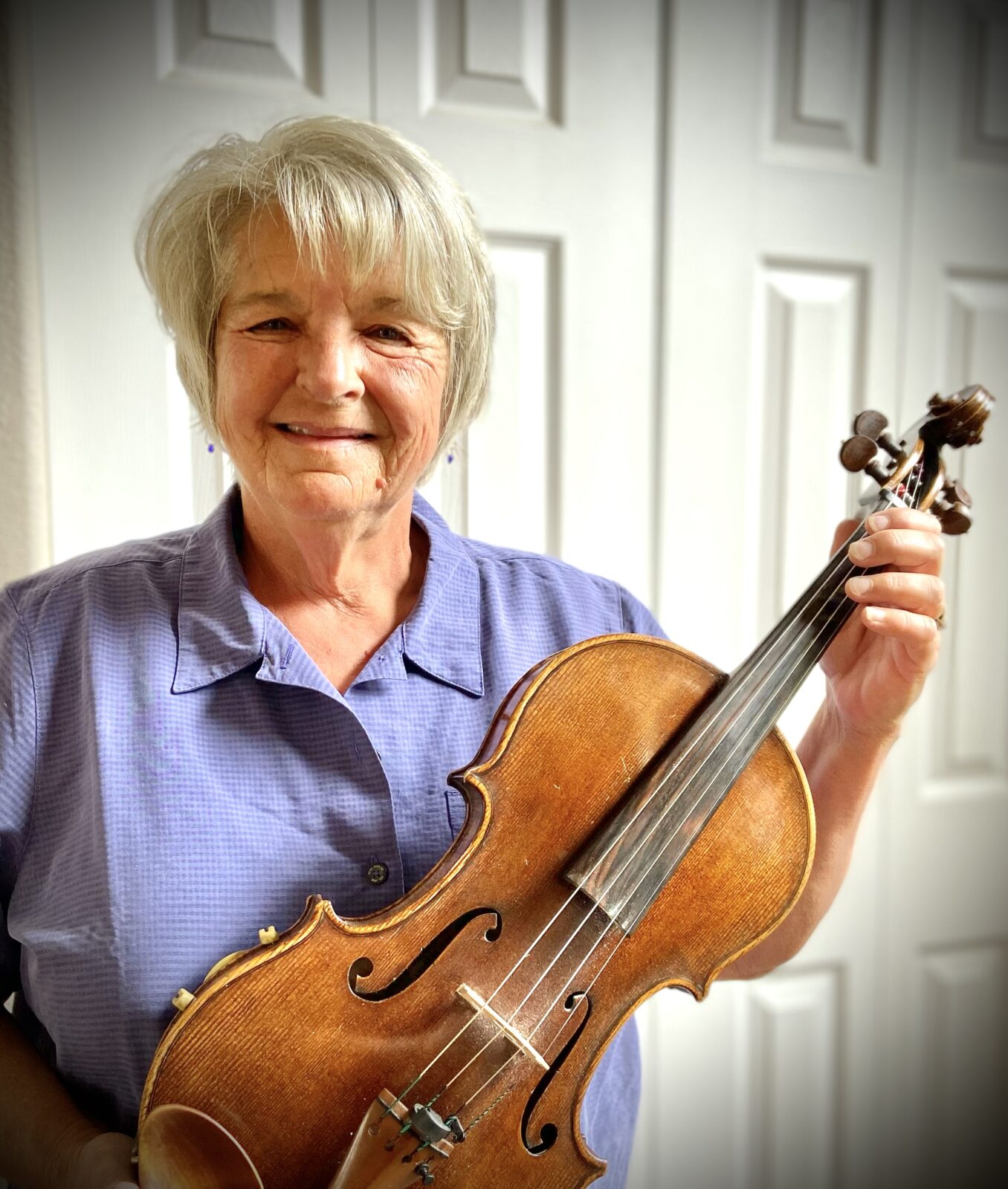
Member of the Month, July 2025: Cheryl Hite
The ranks of ACMP members are filled with professionals who began their college careers with the intent of pursuing music for a living, then for whatever reason moved into another career. Colorado-based violist Cheryl Hite is one of those musicians. A native of Detroit, she enrolled at Indiana University in the 1970s as a double major – biology and viola performance. Read her interview with ACMP Board Chair Bob Goetz.Read More ↗
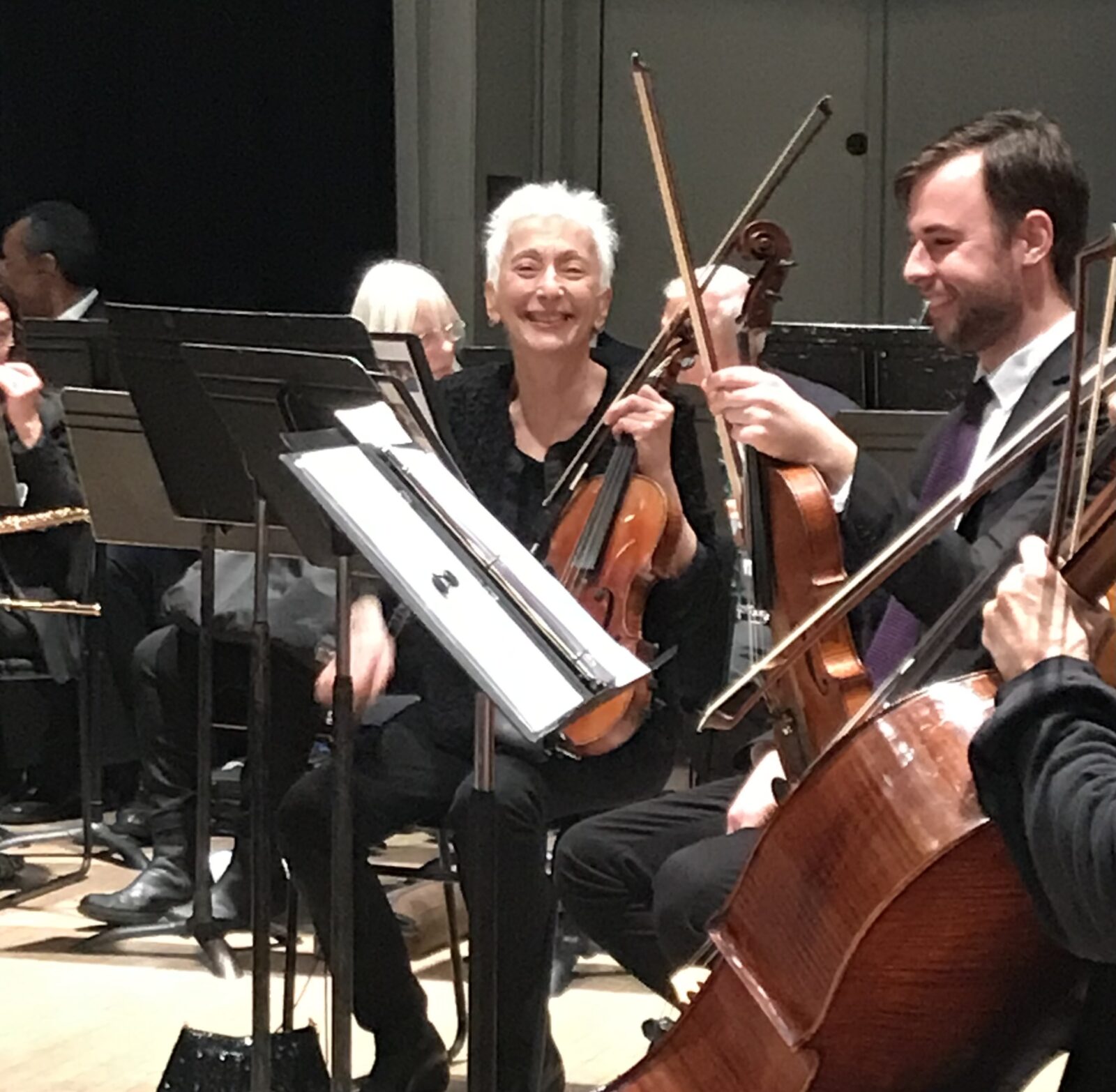
The day my quartet played out of tune and almost got our host evicted
Chamber music can be a high stakes activity - play a bit out of tune, and your host could end up on the street. Read about one such close call in New York City.Read More ↗
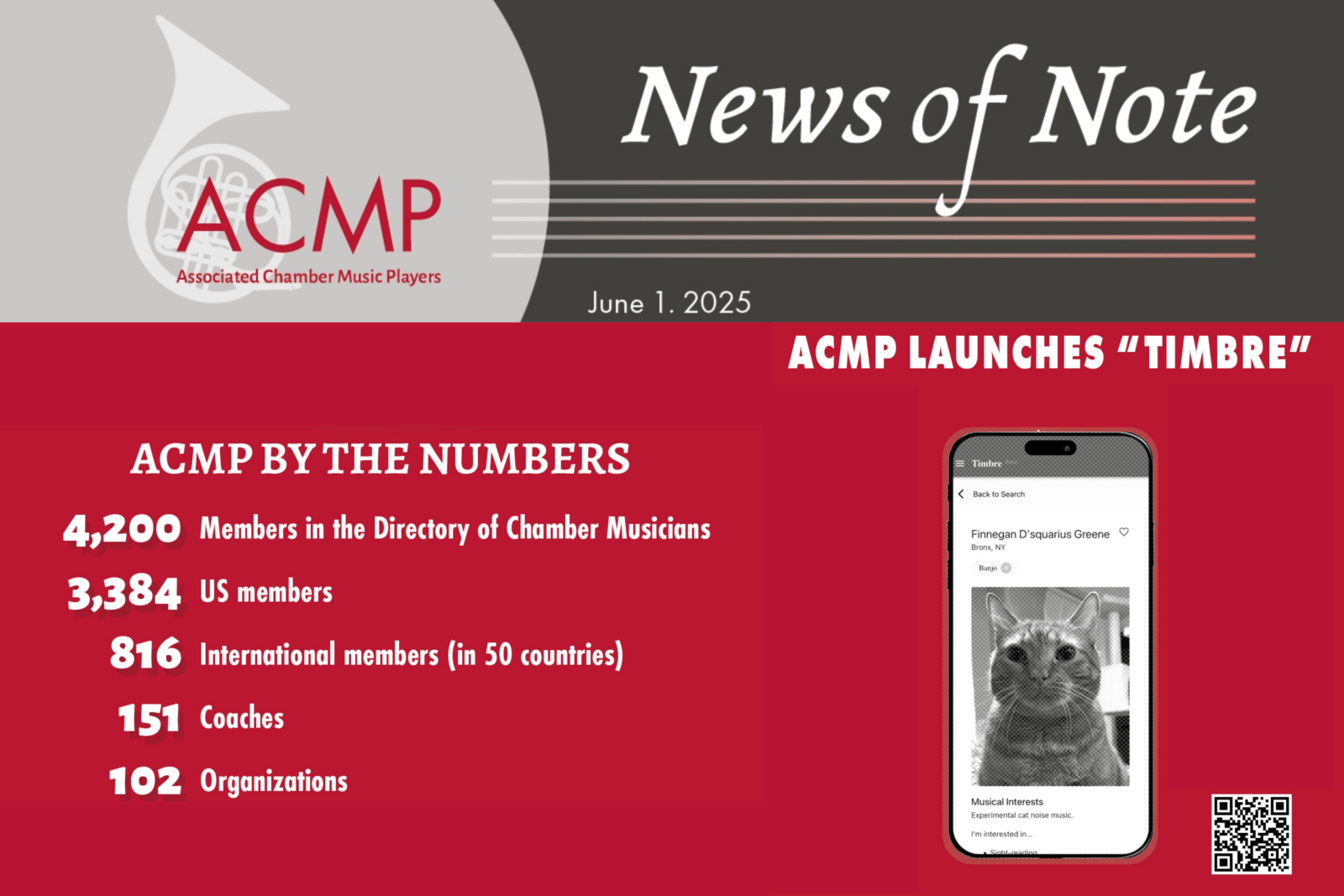
News of Note 2025
It’s that time of year again! The web version of the 2025 News of Note is live, featuring updates from the past year—and some fun extras, including everyone’s favorite: a new puzzle. (Submit your answers by July 1!)Read More ↗
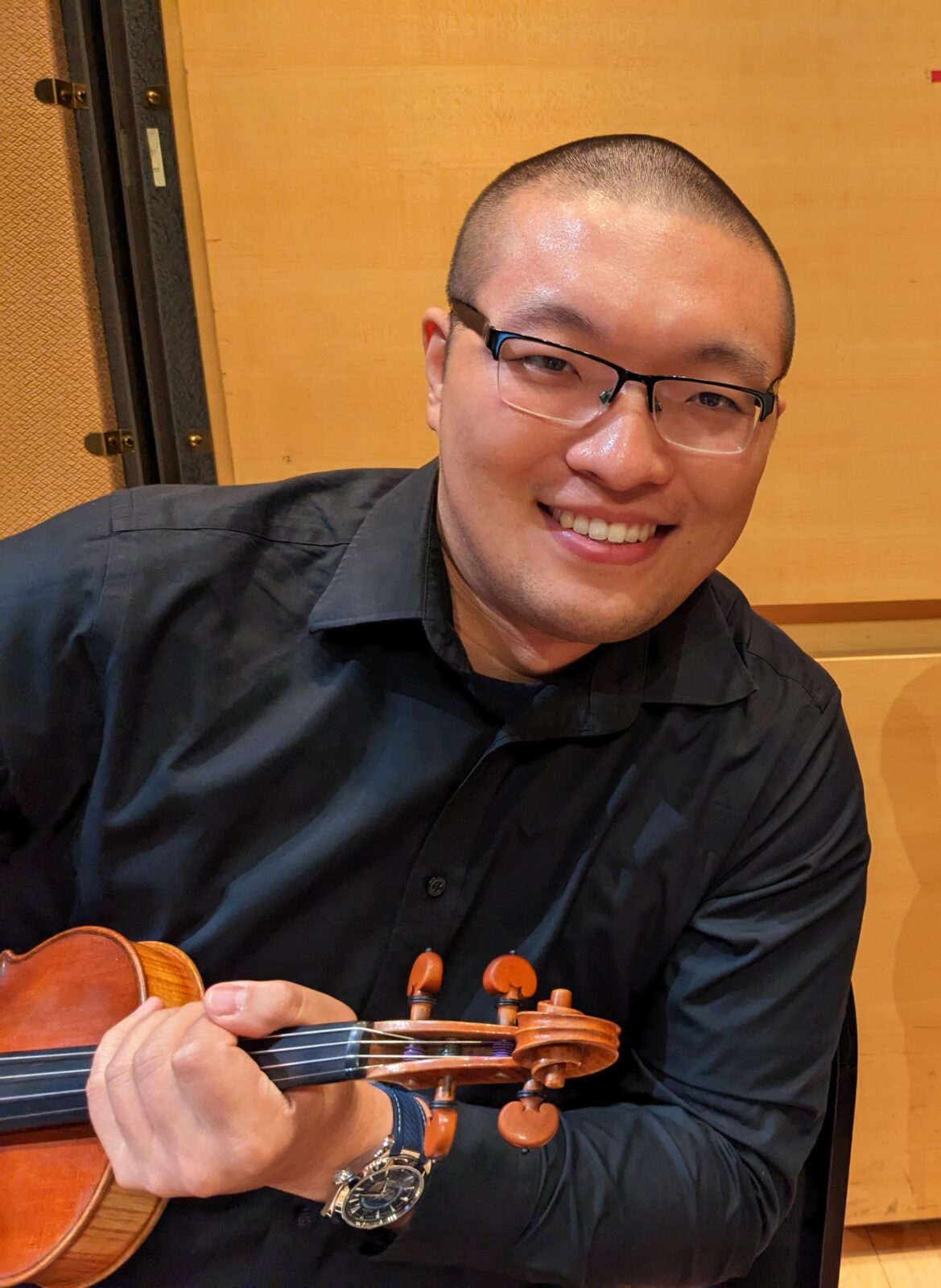
Member of the Month, June 2025: Frank Song
Frank Song, 28, may work remotely as a software engineer, but when it comes to music and the arts, he is all about being there, in person. With the flexibility to travel in his work, he seeks out concerts or museum exhibits in cities far beyond his home in Toronto. And while he’s at it, he takes along his violin to play chamber music. We caught up with Frank on a recent visit to New York, where he played chamber music with people he found through ACMP.Read More ↗

Seasoning for the Seasons
With a taste for adventure and a pinch of whimsy, follow ACMP cellist Tom Cappaert’s lead: stage a chamber concert in a Quito pizza parlor.Read More ↗
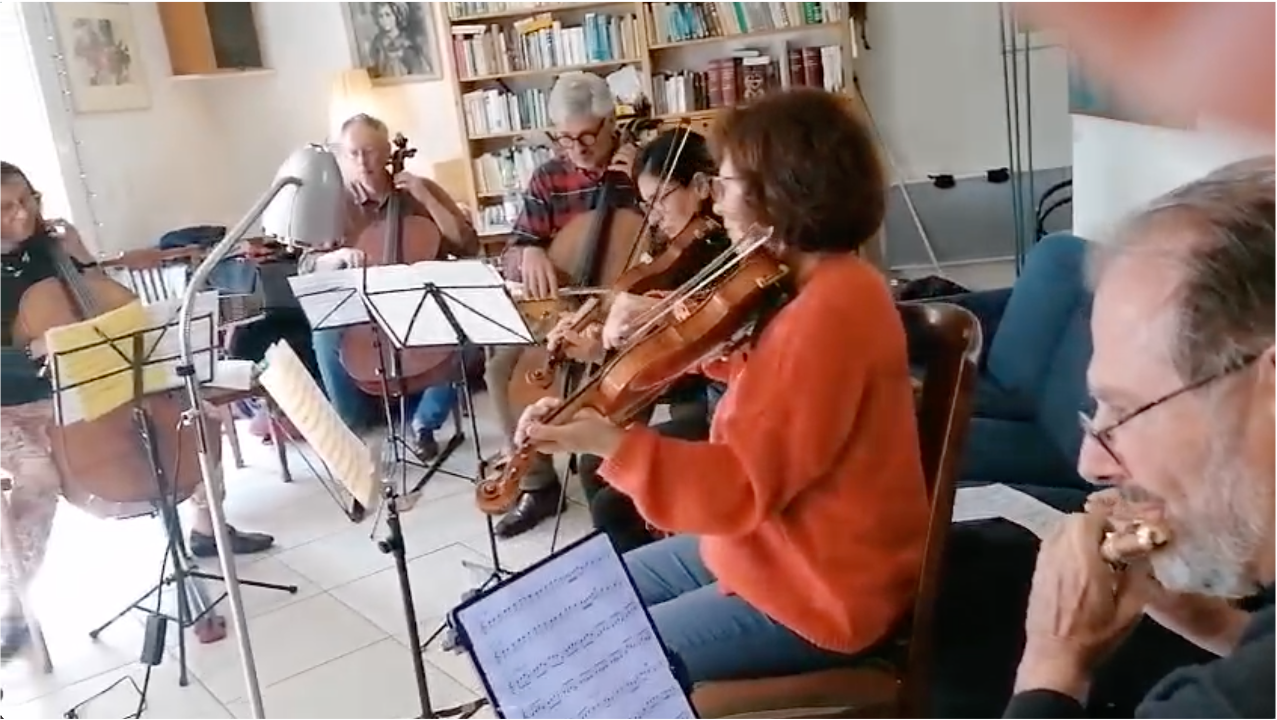
May 2025 Play-In Highlights!
Highlights from just a few Play-Ins during National Chamber Music Month!Read More ↗
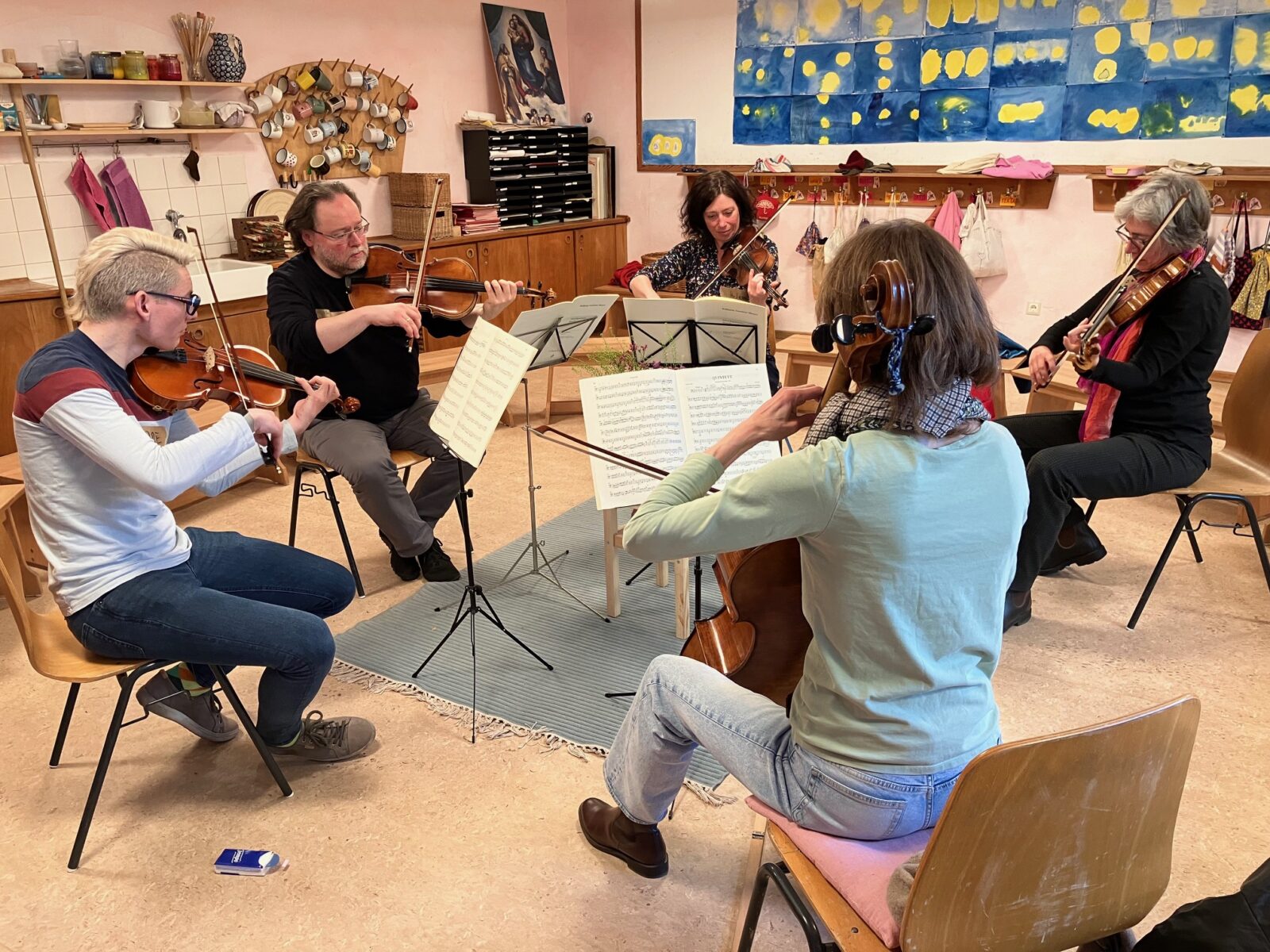
Play-In Report: Berlin Kammermusik Liste
Michael Knoch runs the Berlin Kammermusik Liste, and represents ACMP as its International Ambassador in Germany. He holds at least two Play-Ins a year, and has a unique gift for organizing large Play-Ins with a mix of all instruments and voice. Read about his second Play-In of 2025!Read More ↗
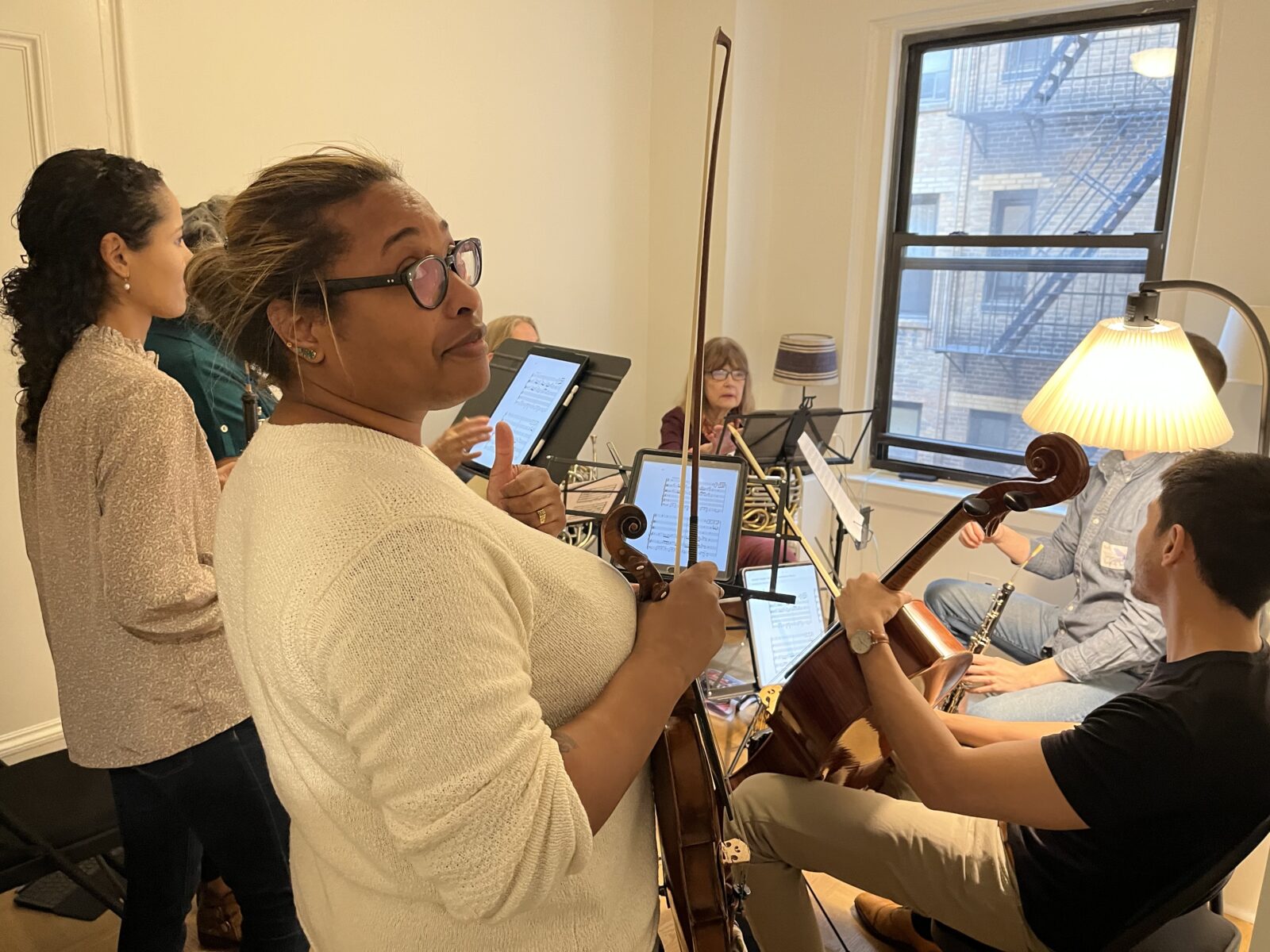
2025 Worldwide Play-In Events
May is Chamber Music Month! Celebrate with Play-Ins all month long, and during the Worldwide Play-In Weekend: May 16-18, 2025. See this list of Play-Ins in the ACMP Directory to date, and keep checking it for updates.Read More ↗
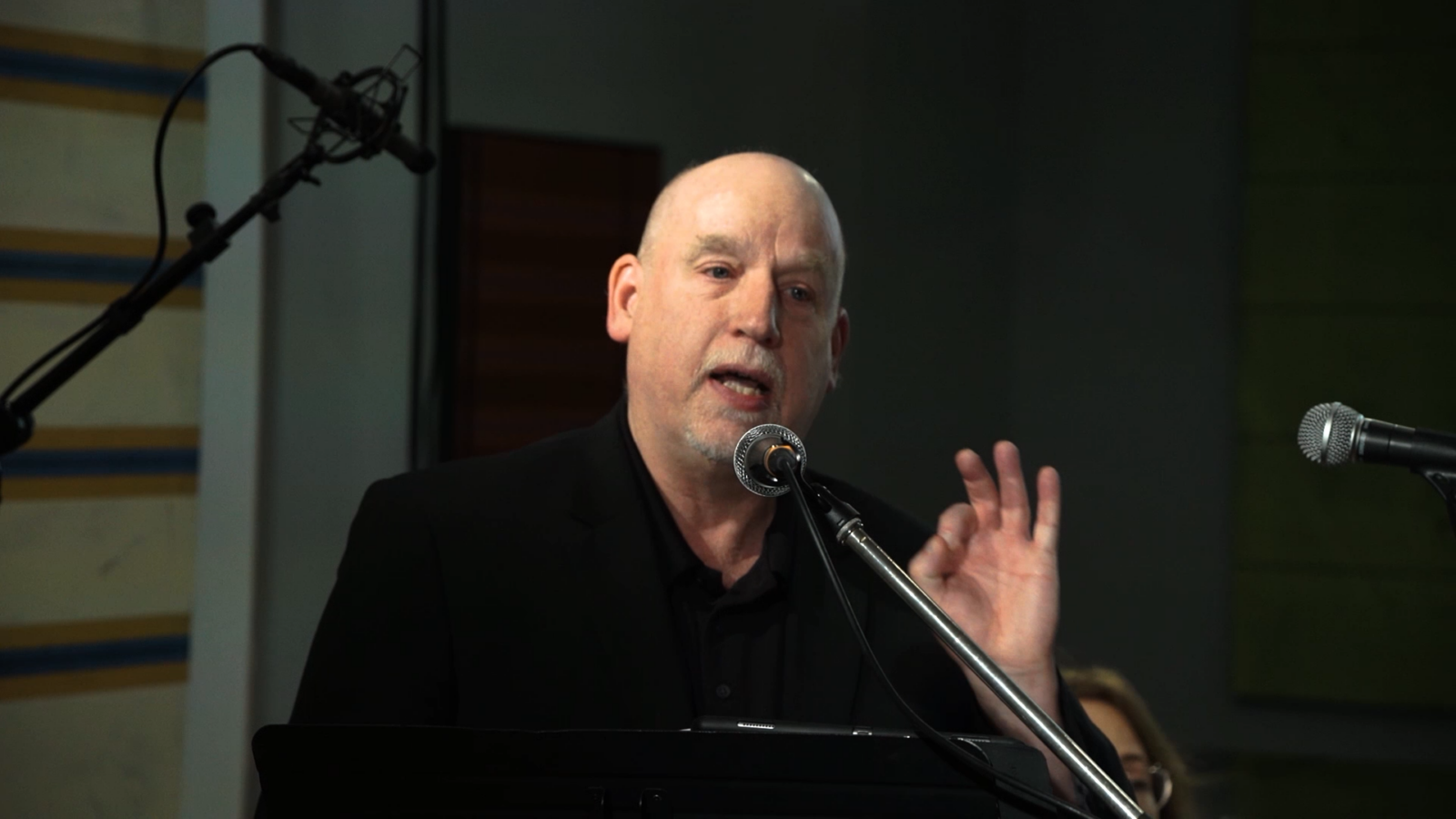
New Video: Ravel’s String Quartet with Cal!
Cal Wiersma is back, sharing ensemble tips and tricks through the lens of Ravel’s String Quartet.Read More ↗
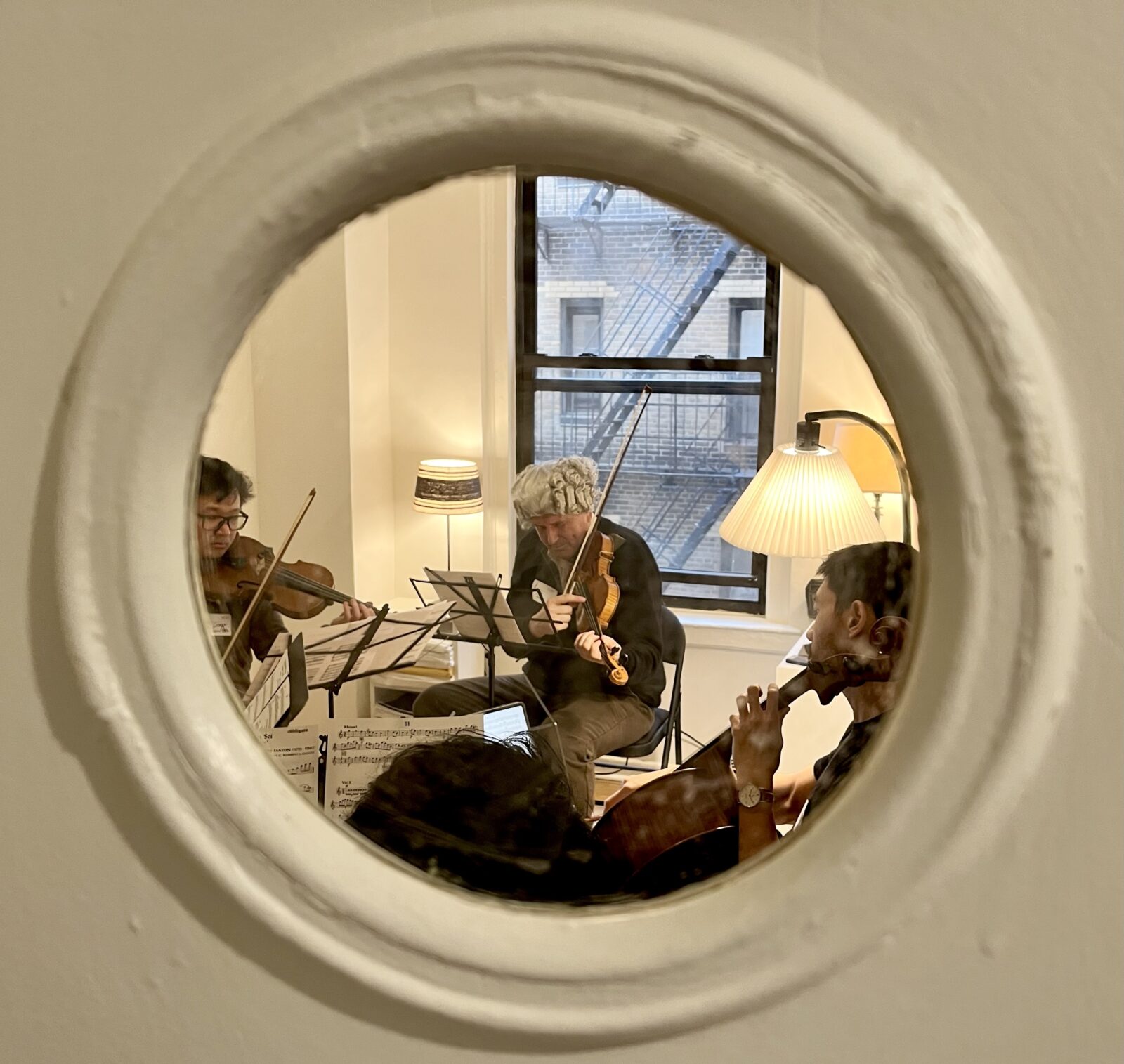
Here’s looking at you, Joe!
One day before Haydn's 293rd birthday - a Haydn party happened in Manhattan. Haydn himself appeared (in the form of ACMP violinist, board member and host, Bob Goetz.) 30 players participated - one third of the participants were wind and brass players! Read about the party and get some fun repertoire ideas!Read More ↗
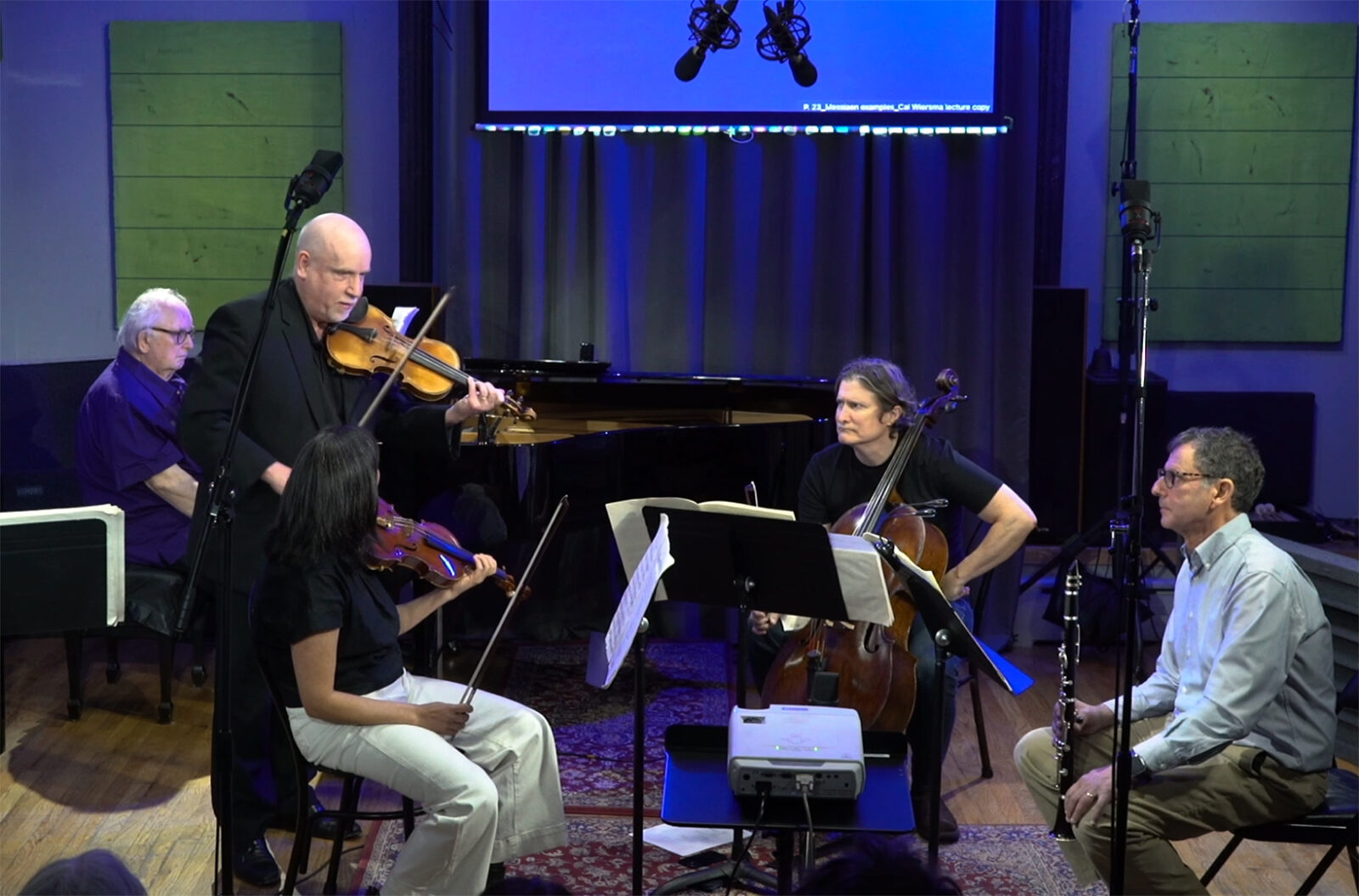
Cal Wiersma Class: Rehearsal Techniques in Ravel’s String Quartet
Back by popular demand - ACMP is offering another live and live-streamed class with violinist and chamber music coach Cal Wiersma on chamber music rehearsal techniques in Ravel's String Quartet on Sunday, April 6 at 3pm ET.Read More ↗
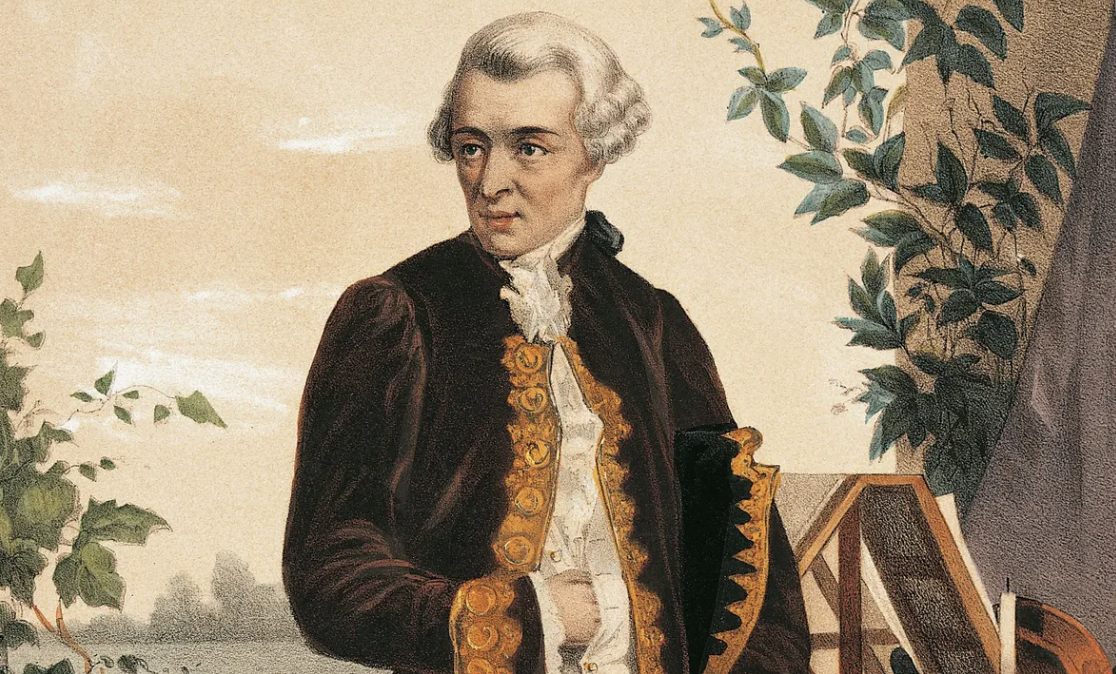
The 2025 ACMP Haydn Challenge
March 31 is Joseph Haydn’s birthday! It’s also a fabulous occasion to celebrate his contributions to the world of chamber music with a gift in his honor to ACMP…Throughout the month of March, we hope you will participate in the ACMP Haydn Challenge.Read More ↗
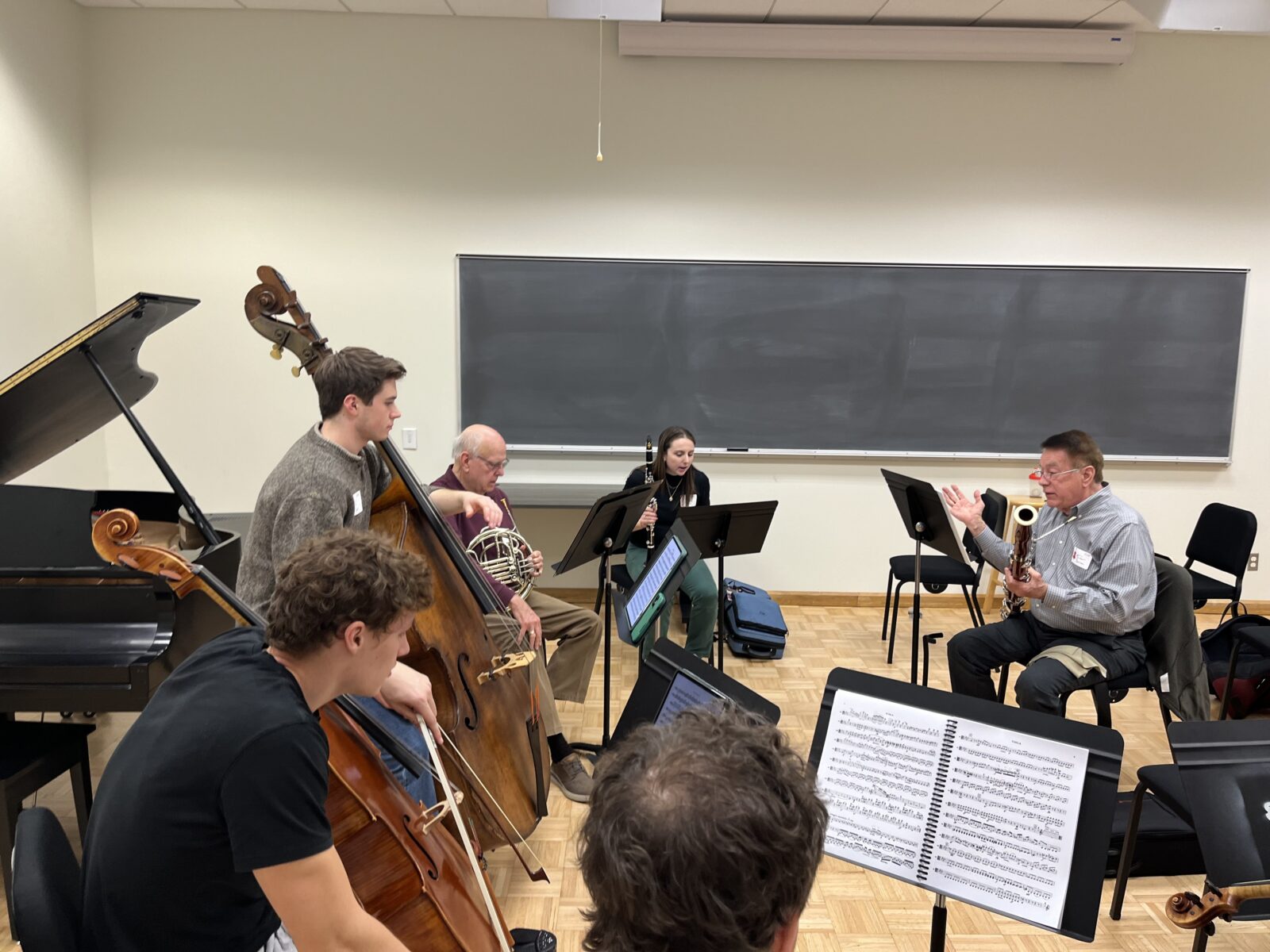
Post-CMA Conference Recap 2025
The CMA Conference in Houston—four days of nonstop music, inspiring connections, a jam-packed ACMP Play-In and a surprise woodwind trio at the Menil Collection!Read More ↗

New Listening Club Video: Exploring Brahms Piano Quintet in f minor, Op. 34
Out now! Watch the video recording from our recent Listening Club event with Peter Fender returning and going through Brahms’ Piano Quintet in F minor, Op. 34—an arrangement of an arrangement.Read More ↗
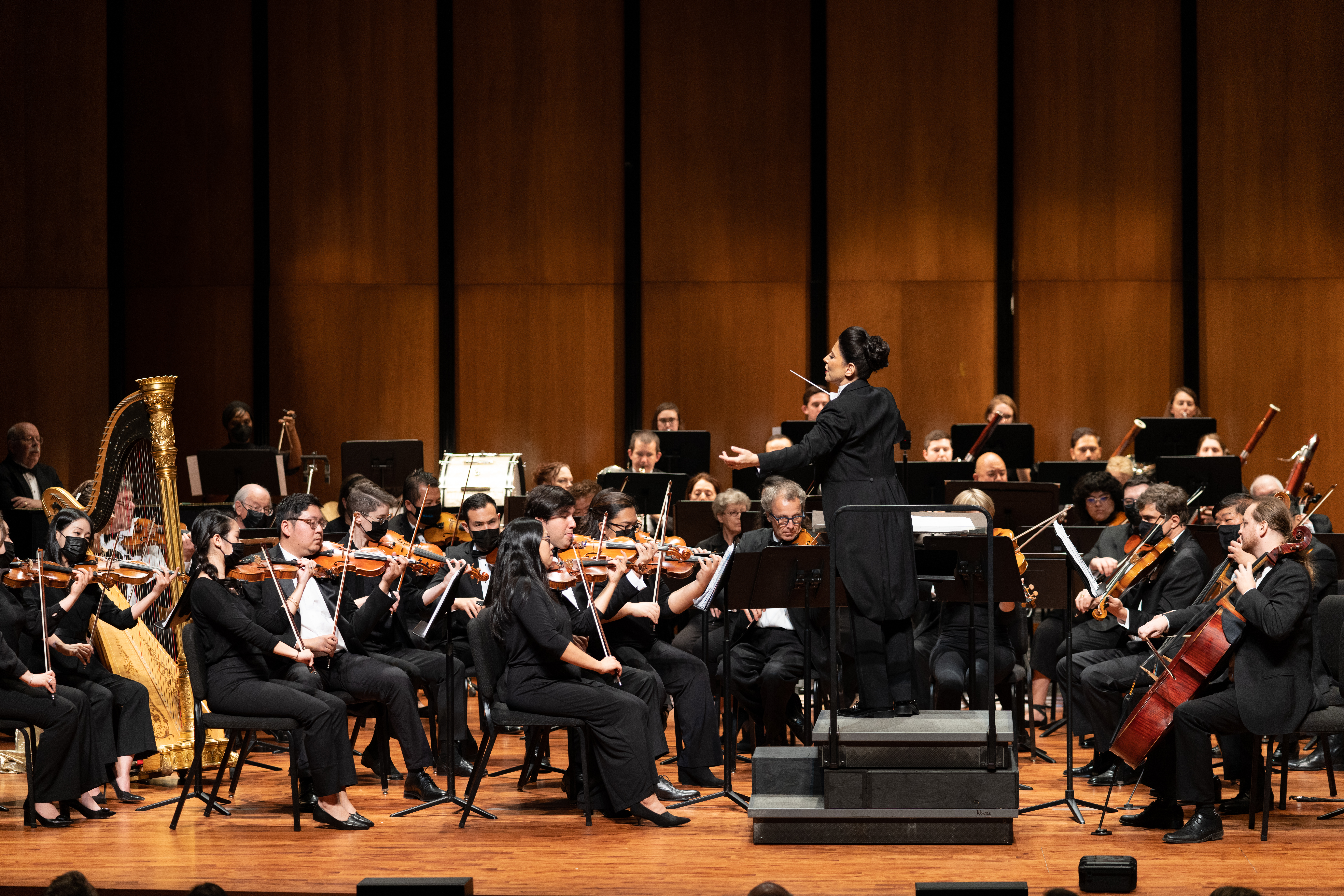
An orchestra born out of one woman’s dream
Over the course of its 25 years, the Texas Medical Center Orchestra has earned national acclaim in becoming a fixture of the Houston musical community. But how it got to this point can be traced to the vision of one woman—Libi Lebel, who moved to the Houston area in the late 1990s as an aspiring conductor and simply wanted to find a group to lead.Read More ↗
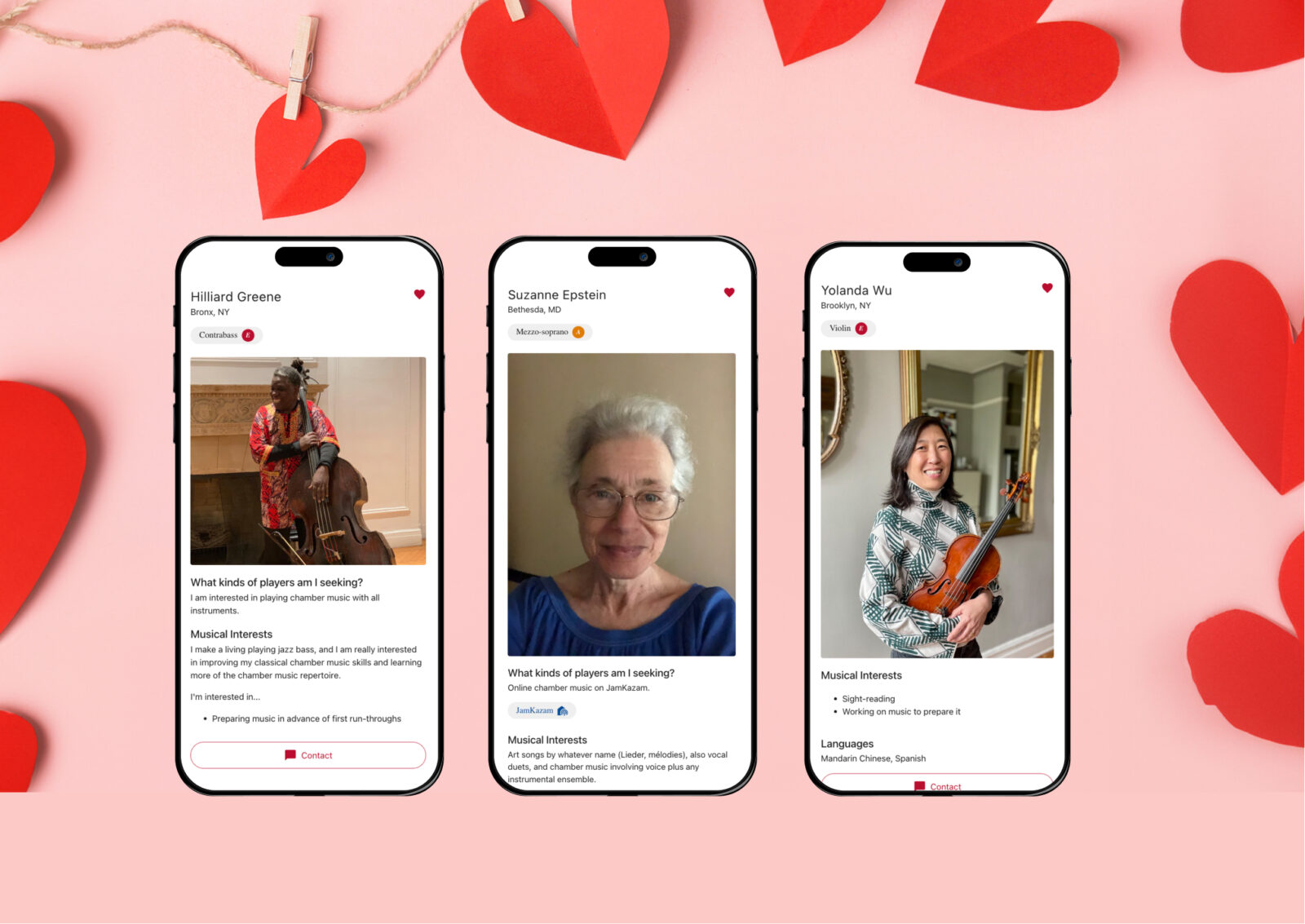
And it’s launched! The new Timbre web app
Just in time for Valentine's Day, ACMP is launching its new Timbre web app. Here's how to find it - and some handy tips on how to use it, too.Read More ↗
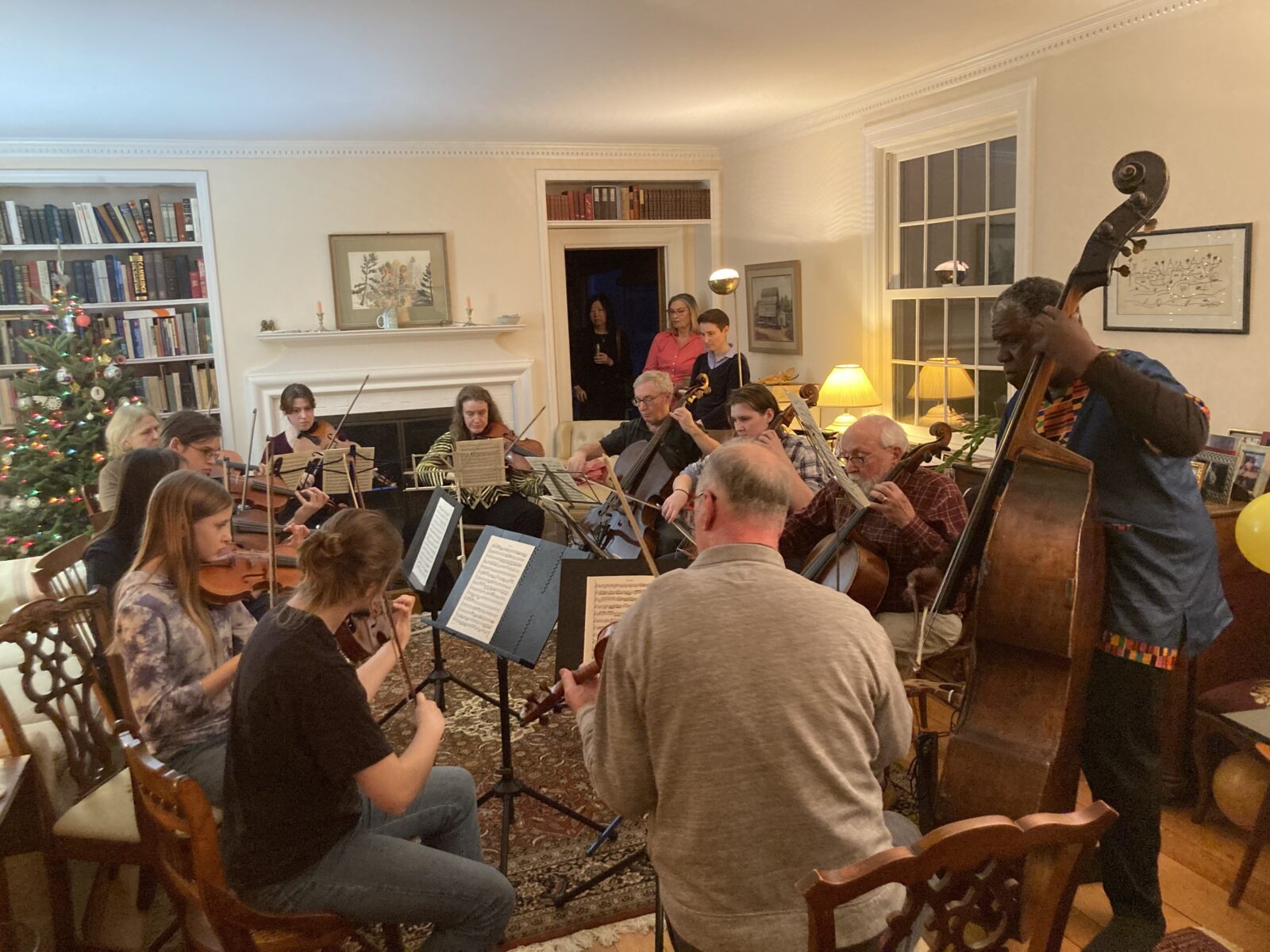
Celebrating the holidays with chamber music!
Looking back on a festive holiday season,ACMP was especially inspired this year by how many of our members made music together in their homes as part of their celebrations. ACMP Executive Director Stephanie Griffin attended two of these, and a special jazz party on New Year's Day.Read More ↗
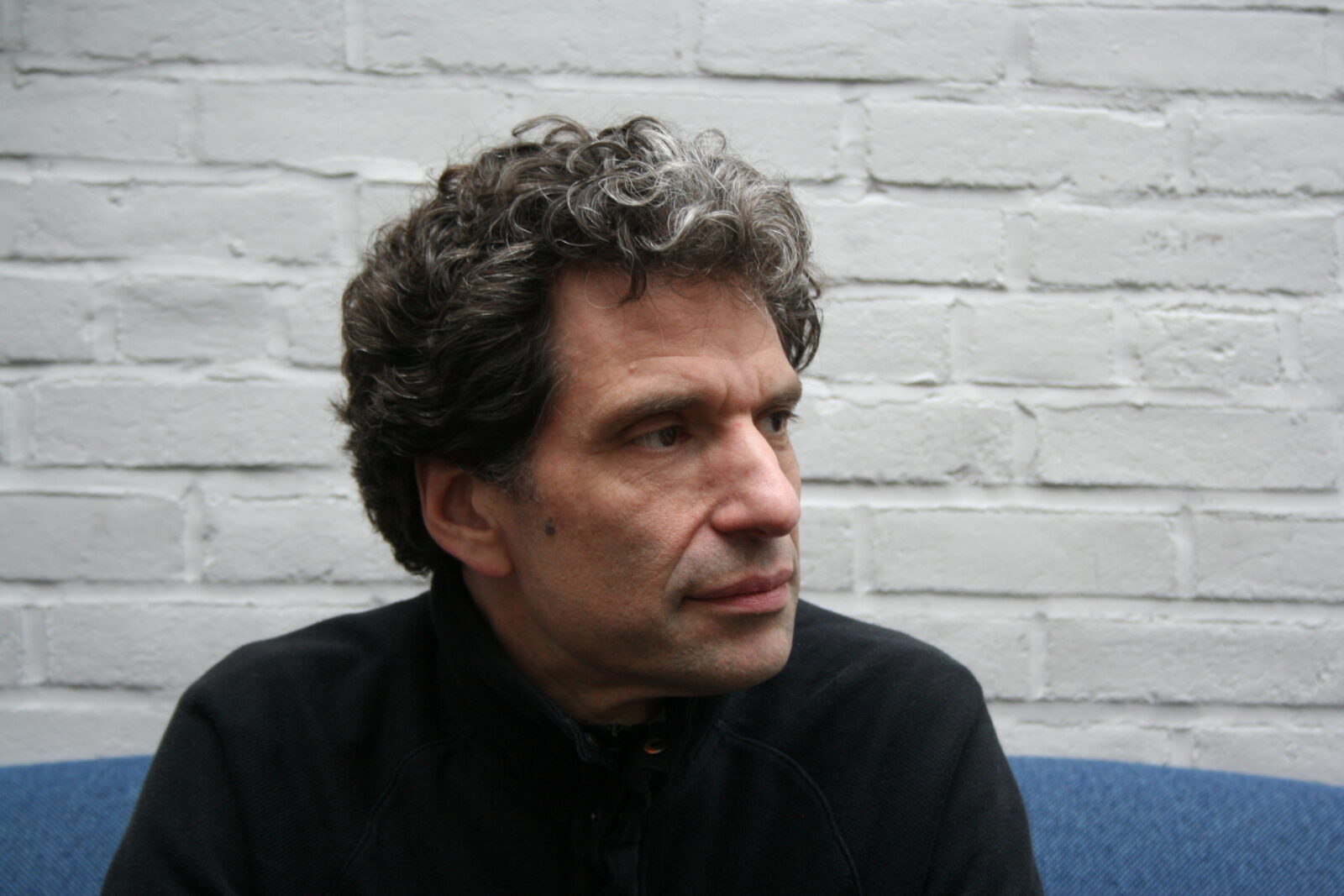
ACMP member discount on Seth Knopp’s new course “Music Speaks”
Join pianist and Yellow Barn Artistic Director Seth Knopp in New York City for a unique new music appreciation course "Music Speaks" on February 22 and 23 and March 1 and 2. And enjoy a 20% discount as a member of ACMP!Read More ↗